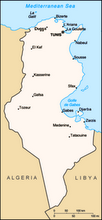Tunisian Extra Virgin Olive Oil Products
Tunisian Olive Oil in History:
For thousands of years olive oil has been prominent in all the great civilizations that have prospered in Tunisia. The olive tree was cultivated by the Phoenicians, the Greeks, the Carthaginians, the Romans and the Arabs, in a tradition that has been passed down from father to son ever since. Olive cultivation in Tunisia dates back to the 8th century BC, even before the founding of Carthage by Queen Dido. The Phoenicians were the first to introduce this crop to North Africa. In the Carthaginian period, olive cultivation started to spread on account of several advantages granted to olive-growers.
Romans continued the expansion of olive-growing stepped-up irrigation, olive oil extraction technique. Excavations at Sufeitula (present-day Sbeitla) and Thysdrus (El Jem) and Roman mosaics discovered in Sousse attest to the widespread culture of olive-trees throughout Tunisia.
Andalusian arabs settled in Tunisia to take advantage of olive cultivation opportunities. Helps granted to olive-growers with low-fat imposition, encouraged them to bring out a huge territory by planting olive trees.Since Phoenicians and through great civilizations that have prospered in Tunisia, olive cultivation occupied a prominent place in the country’s culture and economy.
Export Experience:
Tunisia ranks second in the world after the European Union in the exporting of olive oil and fourth following Italy, Spain and Greece, with average annual exports of over 100,000 metric tons.The Tunisian Olive Oil Office (O.N.H.) is the largest supplier of olive oil to many countries in the world. The United States, Canada, Australia, Norway, South Korea, Malta and many Arab countries including Libya, Jordan, Egypt, Morocco, Algeria, Saudi Arabia and the United Arab Emirates are just some of the many countries where O.N.H. olive oil is enjoyed. Olive oil imports from the O.N.H. into the European Union are larger than from any other non-EU country, with the largest demand coming from Italy, Spain and France. A rich tradition, excellent quality, dedication to customer satisfaction and sound pricing make the O.N.H. increasingly competitive in the growing world olive oil market.
Olive Oil Healthful Diet:
Consumers around the world are becoming increasingly aware of the importance of a balanced, fat-free natural diet, and Mediterranean cuisine, with its emphasis on olive oil, has become synonymous to healthy eating. Regulation of cholesterol, improved digestion and vitamin E content are only some of the dietetic and nutritional qualities of olive oil which have made it the preferred edible oil and an indispensable ingredient in a balanced diet. An International Consenus Statement agreed that there is strong evidence that a Mediterranean-style diet (low in saturated fatty acids, rich in carbohydrate and fibre, and has a high content of monounsaturated fatty acids), in which olive oil is the principal source of fat, contributes to :
• the prevention of cardio-vascular risk factors
• in the primary and secondary prevention of coronary heart disease
• the prevention of some cancers
Extra Virgin Olive oil :
This is the highest-quality olive oil, cold-pressed from selected olives. Extra virgin olive oil has a perfect flavor, a golden green color and a maximum acidity of 1%. This is considered the finest olive oil.
Tunisian Olive Oil can 3L Chaal Brand
calories:120; cholesterol:0%; carbohydrates:0g; sodium 0mg:0g; percentage of caloris from fat:100%; fat:14g; monosaturated fat:10g; polysaturated fat:1.1g; saturated fat:2g; less than 0.8% of acidity .
Tunisian Olive Oil can 3L Ruspina Brand
calories:120; cholesterol:0%; carbohydrates:0g; sodium 0mg:0g; percentage of caloris from fat:100%; fat:14g; monosaturated fat:10g; polysaturated fat:1.1g; saturated fat:2g; less than 0.8% of acidity .
Tunisian Olive Oil can 3L Gold Liquid Brand
calories:120; cholesterol:0%; carbohydrates:0g; sodium 0mg:0g; percentage of caloris from fat:100%; fat:14g; monosaturated fat:10g; polysaturated fat:1.1g; saturated fat:2g; less than 0.8% of acidity .
Tunisian Olive Oil can 1 L Chaal Brand
calories:120; cholesterol:0%; carbohydrates:0g; sodium 0mg:0g; percentage of caloris from fat:100%; fat:14g; monosaturated fat:10g; polysaturated fat:1.1g; saturated fat:2g; less than 0.8% of acidity .
Tunisian Olive Oil can 1 L Ruspina Brand
calories:120; cholesterol:0%; carbohydrates:0g; sodium 0mg:0g; percentage of caloris from fat:100%; fat:14g; monosaturated fat:10g; polysaturated fat:1.1g; saturated fat:2g; less than 0.8% of acidity .
Tunisian Olive Oil can 1 L Gold Liquid Brand
calories:120; cholesterol:0%; carbohydrates:0g; sodium 0mg:0g; percentage of caloris from fat:100%; fat:14g; monosaturated fat:10g; polysaturated fat:1.1g; saturated fat:2g; less than 0.8% of acidity .
Tunisian Olive Oil can 0.75 L Chaal Brand
calories:120; cholesterol:0%; carbohydrates:0g; sodium 0mg:0g; percentage of caloris from fat:100%; fat:14g; monosaturated fat:10g; polysaturated fat:1.1g; saturated fat:2g; less than 0.8% of acidity .
Tunisian Olive Oil can 0.75 L Ruspina Brand
calories:120; cholesterol:0%; carbohydrates:0g; sodium 0mg:0g; percentage of caloris from fat:100%; fat:14g; monosaturated fat:10g; polysaturated fat:1.1g; saturated fat:2g; less than 0.8% of acidity .
Tunisian Olive Oil can 0.75 L Gold Liquid Brand
calories:120; cholesterol:0%; carbohydrates:0g; sodium 0mg:0g; percentage of caloris from fat:100%; fat:14g; monosaturated fat:10g; polysaturated fat:1.1g; saturated fat:2g; less than 0.8% of acidity .
Testimonials:
HONG WU Beijing:I am a cuisine chef, I use very much olive oil in my recipes, and for me undoubtedly Tunisian olive oil is the best.
Tanaka Kyoto:Tunisian olive oil is great.every morning,I take a little glass of Tunisian Extra Virgin olive oil.It is very good for heart.
















